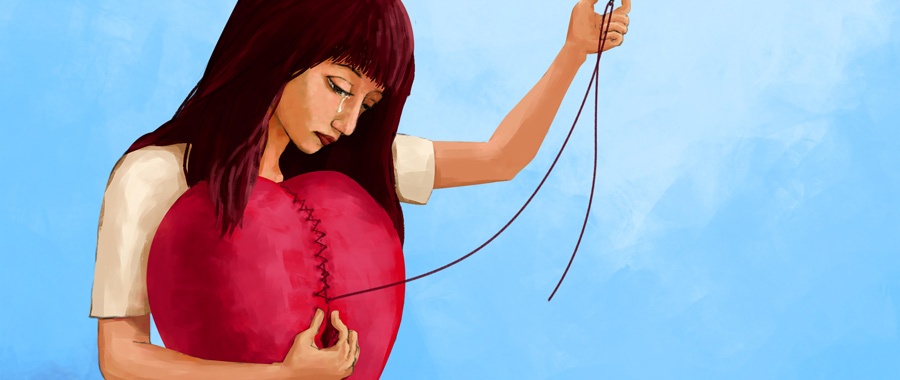Forgiveness and healing form a crux in the journey toward emotional freedom as espoused in Bahá’í teachings. Imagine, if you will, a life unencumbered by the weight of past grievances. Can one truly envision existence devoid of the shackles of resentment? This notion, while aspirational, poses a challenging dilemma: How does one navigate the turbulent waters of emotional turmoil to arrive at a state of liberation? The exploration of forgiveness within the Bahá’í faith provides profound insights on this complex subject, illuminating pathways to emotional healing.
In Bahá’í teachings, forgiveness transcends mere absolution of wrongs. It embodies a transformative process, fostering a deep-seated reconciliation with oneself and others. The initial step in this journey is acknowledging the inevitability of human fallibility. Recognizing that all individuals are endowed with inherent imperfections allows one to confront the nature of wrongdoing within a broader, more compassionate framework. By accepting fallibility, the heart can soften, making space for the seeds of forgiveness to take root.
Moreover, Bahá’í principles underscore the importance of viewing challenges as opportunities for personal growth. The very act of confronting emotional wounds catalyzes healing, granting individuals the autonomy to reframe their narratives. The acknowledgment of past traumas can therefore morph into a crucible for resilience, shaping a more profound understanding of the self. As one delves deeper into this exploration, a critical question arises: What does it mean to genuinely forgive?
Forgiveness in the Bahá’í context is not synonymous with forgetting; it is an active engagement with the pain that allows one to move beyond it. It necessitates the cultivation of empathy, which is vital in disentangling oneself from the bitterness of past experiences. Practicing empathy requires an understanding of the circumstances leading to transgressions, creating a channel for compassion. This process can sometimes be daunting, as it compels individuals to confront vulnerability within themselves.
Inherent in the act of forgiveness is the notion of letting go. This release, however, is not the relinquishing of accountability; it is the conscious decision to liberate oneself from emotional bondage. Embracing this principle aligns with Bahá’í teachings emphasizing the promotion of harmony and unity. Therefore, when one chooses to forgive, it not only contributes to personal emotional freedom but also fosters communal coherence. Herein lies a significant aspect of the Bahá’í approach—individual healing parallels collective well-being.
The practice of forgiveness is further enhanced through the cultivation of virtues such as patience, kindness, and understanding. Engaging in these virtues acts as a balm for the soul, ameliorating the sting of past grievances. Developing such qualities is pivotal; it requires sustained effort and intentionality. The act of forgiving oneself is equally paramount. Often, individuals grapple with feelings of guilt or inadequacy, which can impede the journey toward healing. Embracing self-forgiveness is a crucial tenet, as it dismantles the barriers to emotional liberation.
A contemplative examination of the self becomes integral in this healing process. Reflecting on personal experiences allows one to identify recurring patterns that may hinder emotional progression. This introspection is not merely an act of self-criticism; rather, it provides an opportunity for personal evolution. Are there emotional residues from past interactions that continue to influence present behaviors? By addressing such questions, individuals can disengage from detrimental cycles, fostering a healthier emotional landscape.
Furthermore, Bahá’í teachings advocate for a proactive pursuit of positive relationships as a mechanism to reinforce emotional well-being. Cultivating connections with others who embrace the principles of forgiveness and healing can amplify one’s resolve. These relationships serve as a supportive network, encouraging individuals to embody forgiveness in their daily lives. Mutual support creates an atmosphere wherein forgiveness flourishes, nurturing emotional resilience within the community.
Ultimately, the pathway to emotional freedom through forgiveness is a multifaceted journey that demands both courage and commitment. It challenges individuals to confront uncomfortable truths while simultaneously embracing the potential for renewal. The practices embedded within the Bahá’í principles offer invaluable guidance; they illuminate pathways laden with compassion, understanding, and ultimately, acceptance.
In conclusion, the pursuit of forgiveness and healing within the context of Bahá’í teachings transcends personal gratification. It is an invitation to engage in a transformative process that nurtures both the individual and the community. The challenge lies not only in the act of forgiving but in the journey of self-discovery that accompanies it. As one navigates this terrain, the essence of emotional freedom becomes increasingly tangible, revealing the profound interconnections between personal well-being and collective harmony. Thus, as individuals and communities embark on this path, they engage in a powerful dance of healing that reverberates through the fabric of society, fostering a world imbued with peace and understanding.
